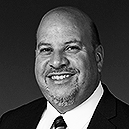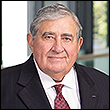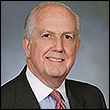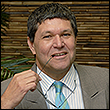

The privacy and confidential nature of arbitration proceedings allow entities adjudication without the public exposure that can damage the fan base of athletes, organizations, and sports-related companies and translate to potential embarrassment and financial loss. Arbitration enables parties to preserve relationships and protect brand identity and reputation, as well as to minimize business disruption.
The Ted Stevens Olympic and Amateur Sports Act of 1978 and the U.S. Olympic Committee (USOC) bylaws designate the AAA to administer arbitrations between the USOC and athletes or representative sports organizations regarding (1) athlete eligibility and (2) a National Governing Body’s (NGB) franchise status, or recognition as an Olympic sport.
The United States Anti-Doping Agency (USADA) names the AAA as the administrator to resolve disputes related to proceedings under its Protocols for athletes in Olympic sports. In fact, the AAA has had a statutory designation to administer sports participation, eligibility, and doping cases for over 40 years and trains the Court of Arbitration for Sport (CAS) arbitrators who decide sport-doping cases.
Amateur and professional sports also utilize arbitration to resolve doping and eligibility disputes. For example, the AAA administers the PGA (Professional Golfers Association) Doping and Player Integrity Programs to arbitrate appeals of violations/sanctions and the LPGA (Ladies Professional Golfers Association) doping program, as well as programs for other sports organizations.
The panel includes attorneys, executives, professors, and former judges whose experience and expertise is steeped in athlete/agent representation, brand protection and management, eSports, executive contracts and employment matters, facility construction and use, franchise and vendor agreements, gaming and gambling, financing and team operation, professional league disputes, and more. Panelists must meet stringent minimum qualifications for consideration and are guided by the Code of Conduct for Commercial Arbitrators.
For over 90 years, the AAA-ICDR® has been the industry leader and world’s largest alternative dispute resolution (ADR) provider helping parties navigate the process efficiently and economically. With staff and resources in 26 U.S. cities and international offices and hearing centers, dedicated case managers ensure a smooth and trouble-free experience.
The security and privacy of party and case information is a top priority for the AAA-ICDR. The AAA-ICDR has implemented best practice policies, technologies, and procedures to help protect its data and technology resources. The protections we have implemented apply to all case data and equipment stored and managed on the AAA-ICDR technology infrastructure.
 |
Lance K. Tanaka |
 |
Andrew Barton |
 |
Thomas M. Ventrone, Esq. |

Please complete the form below for more information on AAA-ICDR Sports Industry Dispute Resolution:
 |
 |
 |
 |
|
Catharine Biggs Arrowood |
Hugh J. Bell, Jr. |
Raymond G. Bender |
Fred G. Bennett |
 |
 |
 |
 |
|
Marc Borello |
Thomas Brewer |
Gerry F. Doyle |
Allen B. Green |
 |
 |
 |
 |
|
Hon. Faith S. Hochberg |
Kathryn J. Humphrey |
Paul Klaas |
Steve Koh |
 |
 |
 |
 |
|
Sharon L. Larkin |
Pamela Meredith |
Elliot Polebaum |
Kara M. Sacilotto |
 |
 |
 |
 |
|
Lawrence Schaner |
Lester Schiefelbein |
Milton “Skip” Smith |
Stephen Smith |
 |
 |
 |
 |
|
Edna Sussman |
Wolf von Kumberg |
Kellye L. Walker |
Richard Ziegler |

Steve K. Andersen, Esq.
Vice President, ICDR
Los Angeles, CA
+1.213.271.9915 | [email protected]

Andrew Barton
Vice President, AAA
San Antonio, TX
+1.210.998.5750 | [email protected]